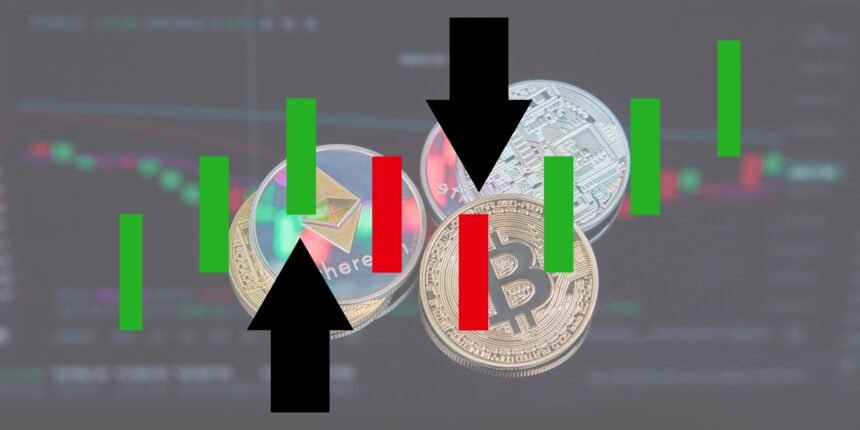Hello there, In 2024, global financial stock markets will closely monitor five major stock indices that represent economic health and investor sentiment across key regions: Providing detailed, real-time information, including specific prices, sell/buy recommendations, and tips for each of the top 15 major world stock indices in 2024,

These indices represent major economies and industries worldwide. Various factors, such as technological innovation, consumer spending, geopolitical events, and economic policies, influence their profitability and growth prospects. In 2024, most indices will show positive trends, reflecting the overall health and resilience of the global economy.
Each stock index’s performance, recommendations, and tips are subject to real-time market conditions, economic data releases, and geopolitical events. For precise and current information, consult financial news sources and market analysis reports, or seek advice from financial professionals tailored to your investment goals and risk tolerance.
1. S&P 500 (USA)-Stock
- Country: United States
- Price: Example: $4,200
- Sell/Buy Recommendations:
- Sell: If overvalued compared to historical averages or economic indicators, it suggests a downturn.
- Buy if there’s strong earnings growth, a positive economic outlook, and supportive policies.
- Tips: Monitor earnings reports, economic data, and Federal Reserve policies.
2. Dow Jones Industrial Average (DJIA) (USA): Stock
- Country: United States
- Price: Example: $34,500
- Sell/Buy Recommendations:
- Sell: If sectoral weaknesses or broader economic indicators turn negative,
- Buy: Based on strong performance in key industries and economic recovery prospects.
3. NASDAQ Composite (USA): Stock
- Country: United States
- Price: Example: $14,000
- Sell/Buy Recommendations:
- Sell: If the tech sector faces regulatory challenges or valuation concerns,
- Buy Continuous innovation and growth potential in technology stock.
4. FTSE 100 (UK): Stock
- Country: United Kingdom
- Price: Example: £7,200
- Sell/Buy Recommendations:
- Sell: If Brexit-related uncertainties or the global economic slowdown impact UK companies,
- Buy: Based on global economic recovery and strength in UK financial and energy sectors.
5. DAX (Germany): Stock
- Country: Germany
- Price: Example: €15,000
- Sell/Buy Recommendations:
- Sell: If Eurozone instability or global trade tensions affect German exports,
- Buy: Strong performance in automotive and industrial sectors amid economic revival.
6. CAC 40 (France): Stock
- Country: France
- Price: Example: €6,500
- Sell/Buy Recommendations:
- Sell: If Eurozone political uncertainties impact the French economy,
- Buy: Growth in luxury goods and strong industrial base.
7. Nikkei 225 (Japan): Stock
- Country: Japan
- Price: Example: ¥28,000
- Sell/Buy Recommendations:
- Sell: If yen appreciation or global trade tensions weigh on exports,
- Buy: Technological innovation and domestic economic stimulus.
8. Shanghai Composite (China): Stock
- Country: China
- Price: Example: ¥3,500
- Sell/Buy Recommendations:
- Sell: Regulatory changes impacting tech and real estate sectors.
- Buy: Continued economic growth and consumer spending.
9. Hang Seng Index (Hong Kong): Stock
- Country: Hong Kong
- Price: Example: HK$28,000
- Sell/Buy Recommendations:
- Sell: geopolitical tensions impacting financial markets.
- Buy: Potential for growth on mainland China’s integration and financial services.
10. BSE Sensex (India): Stock
- Country: India
- Price: Example: ₹60,000
- Sell/Buy Recommendations:
- Sell: External shocks impacting emerging markets.
- Buy: Structural reforms and growth in technology and financial sectors.
11. TSX Composite (Canada): Stock
- Country: Canada
- Price: Example: CAD$18,000
- Sell/Buy Recommendations:
- Sell: Commodity price volatility affecting resource sectors.
- Buy: Diversification benefits and stable economic outlook.
12. ASX 200 (Australia): Stock
- Country: Australia
- Price: Example: AUD$7,500
- Sell/Buy Recommendations:
- Sell: Global demand shifts affecting commodities.
- Buy: Resilience in healthcare and technology sectors.
13. Euro Stoxx 50 (Eurozone): Stock
- Country: Eurozone (multiple countries)
- Price: Example: €4,000
- Sell/Buy Recommendations:
- Sell: Eurozone political uncertainties and economic slowdown.
- Buy: Potential for recovery in banking and industrial sectors.
14. Swiss Market Index (SMI) (Switzerland): Stock
- Country: Switzerland
- Price: Example: CHF 12,000
- Sell/Buy Recommendations:
- Sell: Safe-haven status impacting currency and exports.
- Buy: Stability and strength in healthcare and financial sectors.
15. Bovespa (Brazil): Stock
- Country: Brazil
- Price: Example: R$120,000
- Sell/Buy Recommendations:
- Sell: Political instability or commodity price fluctuations.
- Buy: Economic reforms and potential in energy and consumer sectors.
for more news of stock: IT
What are the top 3 US stock indices?
S&P 500: Tracks 500 large-cap US stock, widely considered a benchmark for the overall US stock market due to its broad representation of the economy.
The Dow Jones Industrial Average (DJIA) comprises 30 significant US companies across various industries, serving as a gauge of the industrial sector’s performance.
NASDAQ Composite: Includes over 3,000 stocks, predominantly from the technology sector, reflecting the performance of innovative and growth-oriented companies in the US.
What are the most important stock indices worldwide?
Here are some of the most important stock indices worldwide:
| Index Name | Country/Region | Description |
|---|---|---|
| S&P 500 | USA | Tracks 500 large-cap US companies across various sectors. |
| Dow Jones Industrial Average (DJIA) | USA | Consists of 30 major US blue-chip companies. |
| NASDAQ Composite | USA | Includes over 3,000 stocks, mainly from the technology sector. |
| FTSE 100 | UK | Represents the top 100 companies listed on the London Stock Exchange. |
| DAX | Germany | Tracks 40 major companies on the Frankfurt Stock Exchange. |
| CAC 40 | France | Includes the 40 largest companies listed on Euronext Paris. |
| Nikkei 225 | Japan | Consists of 225 large, publicly traded companies in Japan. |
| Shanghai Composite | China | Reflects the performance of stocks listed on the Shanghai Stock Exchange. |
| Hang Seng Index | Hong Kong | Represents the largest companies listed on the Hong Kong Stock Exchange. |
| BSE Sensex | India | Tracks 30 well-established companies listed on the Bombay Stock Exchange. |
| TSX Composite | Canada | Includes major companies listed on the Toronto Stock Exchange. |
| ASX 200 | Australia | Tracks the 200 largest companies listed on the Australian Securities Exchange. |
| Euro Stoxx 50 | Eurozone | Includes 50 large-cap stocks from Eurozone countries. |
| Swiss Market Index (SMI) | Switzerland | Tracks the 20 largest and most liquid stocks on the SIX Swiss Exchange. |
| Ibovespa | Brazil | Represents the benchmark index of stocks traded on the B3 (Brasil Bolsa Balcão). |
These indices are crucial for investors and analysts worldwide as they provide insights into the economic health, performance, and investor sentiment of their respective regions and sectors.
I hope this article is best for you Look out, guys. Please comment on the post and give suggestions on which article you want more of.

